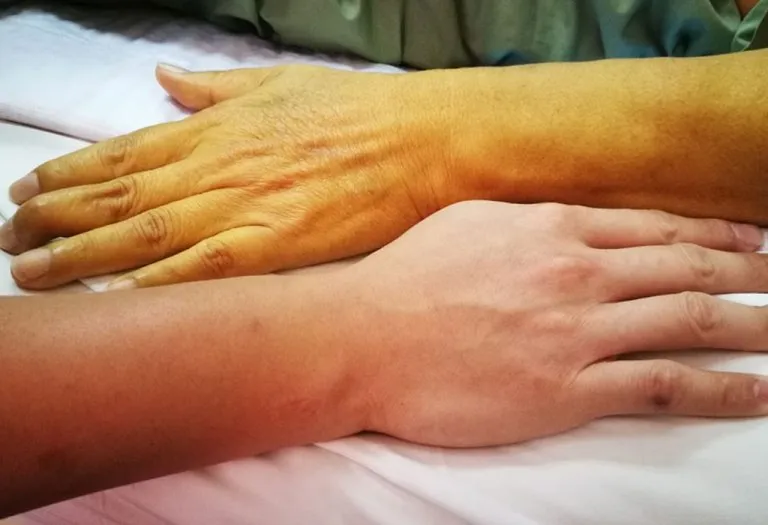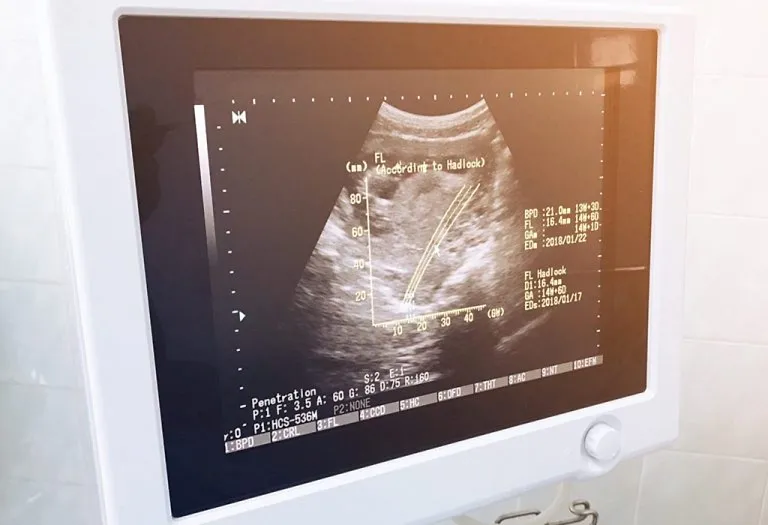Vaginal Changes During Pregnancy

Pregnancy can bring about a lot of changes in a woman’s body. If you are pregnant, you know what we are talking about. You must have noticed certain changes in your body, like weight gain, breast tenderness, shiny hair and skin, etc. But a lot happens ‘down there’ during pregnancy, which you may not have realised yet.
Vaginal changes are hard to notice in early pregnancy. Your lady parts will change due to the hormonal changes, even in outward appearance. Read on to know what changes pregnancy can bring about in your vagina.
Changes That May Happen to Your Vagina During Pregnancy
Changes in the vulva during pregnancy are bound to occur – they may seem strange, but they are entirely normal. Some of the vaginal changes in early pregnancy are mentioned below.
1. Your vagina’s pH level will change
During pregnancy, more blood flow to the parts of your body will be involved in labour. This includes your uterus and vagina. The increased blood supply will alter the pH balance of the chemicals down there (5), resulting in a doughy, gluey scent. Yes, your vagina will smell different, and chances are you will be able to sense it because of your heightened olfactory senses. However, if you notice that the smell is overpowering or foul, consult a doctor as it could be a sign of an infection.
2. Your vagina will taste different
The changes in the taste of your vagina can go unnoticed if your partner does not speak up about it. This change in taste is due to the enhanced blood flow to the vagina, which alters the balance of the chemicals in the genital area. The taste will be more salty and metallic during pregnancy.
3. There will be more discharge from your vagina
Vaginal changes during early pregnancy, such as increased discharge, are often among the first signs that a woman may notice. Most women think that vaginal discharge during pregnancy occurs only close to the time of labour, but that is not true. Pregnancy is characterised by an abundance of hormonal changes in the body of the woman, which can result in changes in labia during pregnancy. Your vaginal walls will be stimulated to produce a milky discharge called leucorrhoea (2), which can help keep your lady parts free of any infections. So, don’t be afraid if the vaginal discharge is more than usual.
4. You may get urinary tract infections
You will be at risk of contracting urinary tract infections (UTIs) during pregnancy. As your pregnancy progresses, your enlarged uterus will press up against the bladder, which can stop the bladder from draining completely. This can cause a urinary tract infection (11).
5. Your vagina may become extremely sensitive
An increase in blood flow to the vulva during pregnancy can engorge it and make it sensitive. It may swell and become sensitive.
6. You might get varicose veins down there
Another change caused due to the increased blood flow into the vaginal area is the occurrence of varicose veins. The walls of the veins are under pressure as a large amount of blood progresses through them slowly. This is the reason for the appearance of varicose veins in pregnant women (1).
7. Your vagina will be more vulnerable to yeast infections
Yeast infections are common in women, whether they are pregnant or not. Around 75% of women are affected by yeast infections. However, pregnant women are more susceptible to yeast infections because of increased estrogen levels and changes in pH (10).
8. Your vagina’s colour might change
The signature colour of the vagina is usually pink, but it might change during pregnancy. Increased blood flow down there may lead to this change (6). It is also known as Chadwick’s sign. The hormones affecting pigmentation may also turn your labia and vulva into darker shades of blue during pregnancy (8). This change may happen as early as four weeks and could also be one of the early signs of pregnancy. But there is nothing to worry about. The blue or purple should disappear shortly after you give birth to your little one.
9. You might notice more ingrown hair
Large amounts of oestrogen in the bloodstream may result in faster growth of pubic hair, which can then become clogged in the pores due to profuse sweating.
10. Your vagina may feel itchy
Yes, you might feel itchy down there. Increased vaginal discharge, changes in the pH levels, and other changes may leave you uncomfortable, and you might feel itchy (9). Itchiness down there is a common symptom of pregnancy and can happen anytime, but if it persists for longer than you can take it, consult your doctor.
11. You might notice light spotting
Light spotting or bleeding, known as implantation bleeding, can occur early in pregnancy as the fertilised egg implants into the uterine lining. Additionally, some women may experience occasional spotting throughout pregnancy, which should be discussed with a doctor to rule out any complications (3).
FAQs
1. What causes vaginal changes during pregnancy?
Vaginal changes in pregnancy are common due to hormonal fluctuations and increased blood flow to the pelvic region (7), helping prepare the body for childbirth.
2. How can I manage vaginal discomfort during pregnancy?
To manage vaginal discomfort during pregnancy, it’s essential to maintain good hygiene, wear loose-fitting clothing, use mild, fragrance-free soaps, and avoid douching (4). If pain persists or is severe, consult a doctor for further guidance.
3. How can I prevent vaginal infections during pregnancy?
To reduce the risk of vaginal infections during pregnancy, practice good hygiene, wear cotton underwear, avoid tight-fitting clothing, and wipe from front to back after using the toilet. It’s also essential to avoid irritants such as scented soaps or perfumed products and to promptly treat any vaginal infections that arise.
A woman’s vagina plays a vital role in the pregnancy journey. Experiencing vaginal changes when pregnant is a natural part of the body’s adaptation to support the developing fetus. None of these changes lasts long, and they will not affect your pregnancy in any way. Furthermore, your lady parts will return to normal quickly after your baby enters the world. However, if these changes get in your day-to-day life, talk to your gynaecologist about them.
References/Resources:
1. Anatomy of pregnancy and birth – vulva; Pregnancy, Birth and Baby; https://www.pregnancybirthbaby.org.au/anatomy-of-pregnancy-and-birth-vulva
2. Vaginal discharge during pregnancy; Pregnancy, Birth and Baby; https://www.pregnancybirthbaby.org.au/vaginal-discharge-during-pregnancy
3. Vaginal bleeding; NHS; https://www.nhs.uk/pregnancy/related-conditions/common-symptoms/vaginal-bleeding/
4. Vaginal discharge during pregnancy: your questions answered; NCT; https://www.nct.org.uk/pregnancy/worries-and-discomforts/common-discomforts/vaginal-discharge-during-pregnancy-your-questions-answered
5. Gleeson. R. P, Elder. A. M, Turner. M. J, Rutherford. A. J, Elder. M. G; Vaginal pH in pregnancy in women delivered at and before term; PubMed; https://pubmed.ncbi.nlm.nih.gov/2930742/
6. Vulvovaginal Health; American College of Obstetricians and Gynecologists; https://www.acog.org/womens-health/faqs/vulvovaginal-health
7. What’s Normal in a Healthy Vagina?; PelviCare; https://pelvicare.uk/blog/whats-normal-in-a-healthy-vagina
8. Motosko. C. C, Bieber. A. K, Pomeranz. M. K, Stein. J. A, Martires. K. J; Physiologic changes of pregnancy: A review of the literature; International Journal of Women’s Dermatology; https://www.ncbi.nlm.nih.gov/pmc/articles/PMC5715231/
9. Causes of Vaginal Itching During Pregnancy and Treatment Options; Well Women Clinic; https://www.wellwomenclinic.co.uk/blog/safe-ways-to-cope-with-vaginal-itching-during-pregnancy/; January 2021
10. Horsager-Boehrer. R; Answers to 6 burning questions about yeast infection during pregnancy; University of Texas Southwestern Medical Center; https://utswmed.org/medblog/yeast-infection-pregnant/; September 2022
11. Urinary tract infections (UTIs) during pregnancy; Pregnancy, Birth and Baby; https://www.pregnancybirthbaby.org.au/urinary-tract-infections-utis-during-pregnancy
Vaginal Itching in Pregnancy
Vaginal Dryness when Pregnant
Vaginal Swelling during Pregnancy
Jelly Like Discharge while Pregnant
Was This Article Helpful?
Parenting is a huge responsibility, for you as a caregiver, but also for us as a parenting content platform. We understand that and take our responsibility of creating credible content seriously. FirstCry Parenting articles are written and published only after extensive research using factually sound references to deliver quality content that is accurate, validated by experts, and completely reliable. To understand how we go about creating content that is credible, read our editorial policy here.




































